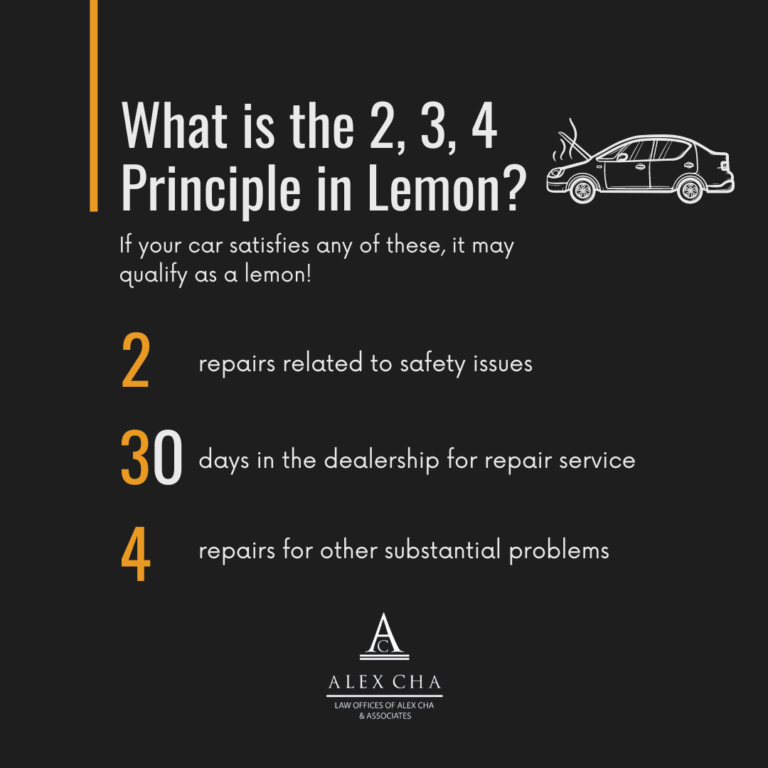California’s Lemon Law, formally known as the Song-Beverly Consumer Warranty Act, provides strong protections for consumers who purchase or lease new or used vehicles that come with warranties. One of the key aspects of the law is the “2, 3, 4 Principle,” which helps determine whether a vehicle qualifies as a “lemon.” This principle outlines specific criteria based on the number of repair attempts or the duration of time a vehicle is out of service. Here’s a detailed look at each component of this principle:
2: Two or More Attempts for a Serious Safety Defect
If a vehicle has a serious safety defect that substantially impairs its use, value, or safety, and the manufacturer or its authorized dealer has made two or more unsuccessful repair attempts to fix the issue, the vehicle may qualify as a lemon. Serious safety defects typically involve issues that pose a significant risk of injury or death, such as brake failure or steering problems.
3: 30 Days in the Shop for Lemon Law
If a vehicle is out of service for repairs for a total of 30 days or more within the first 18 months or 18,000 miles, whichever comes first, it qualifies under the Lemon Law. These 30 days do not have to be consecutive; the total number of days the vehicle is unavailable due to repairs is what matters. The defects causing the extended repair time can include persistent engine trouble, faulty transmission, or malfunctioning electrical systems. Even if these issues do not directly threaten safety, they significantly impact the vehicle’s performance, value, or usability. This provision ensures that consumers are not left without their vehicle for extended periods due to ongoing repair needs, protecting them from the inconvenience and potential financial burden of a defective vehicle.
4: Four or More Attempts for Any Defect
If the vehicle has any defect, regardless of its nature, and the manufacturer or dealer has attempted to repair it four or more times without success, it may qualify as a lemon. This criterion applies to any defect that substantially impairs the vehicle’s use, value, or safety, indicating a persistent and unresolved problem despite multiple repair attempts.
Conclusion
The “2, 3, 4 Principle” is a critical aspect of California’s Lemon Law, providing a clear framework for consumers to determine if their vehicle qualifies as a lemon. By outlining specific criteria based on the number of repair attempts and the time the vehicle is out of service, this principle ensures that consumers receive the protection and compensation they deserve for defective vehicles. If a vehicle meets any of these conditions, the consumer may be entitled to a replacement vehicle or a refund of the purchase price, along with reimbursement for related costs such as towing and rental car expenses.
